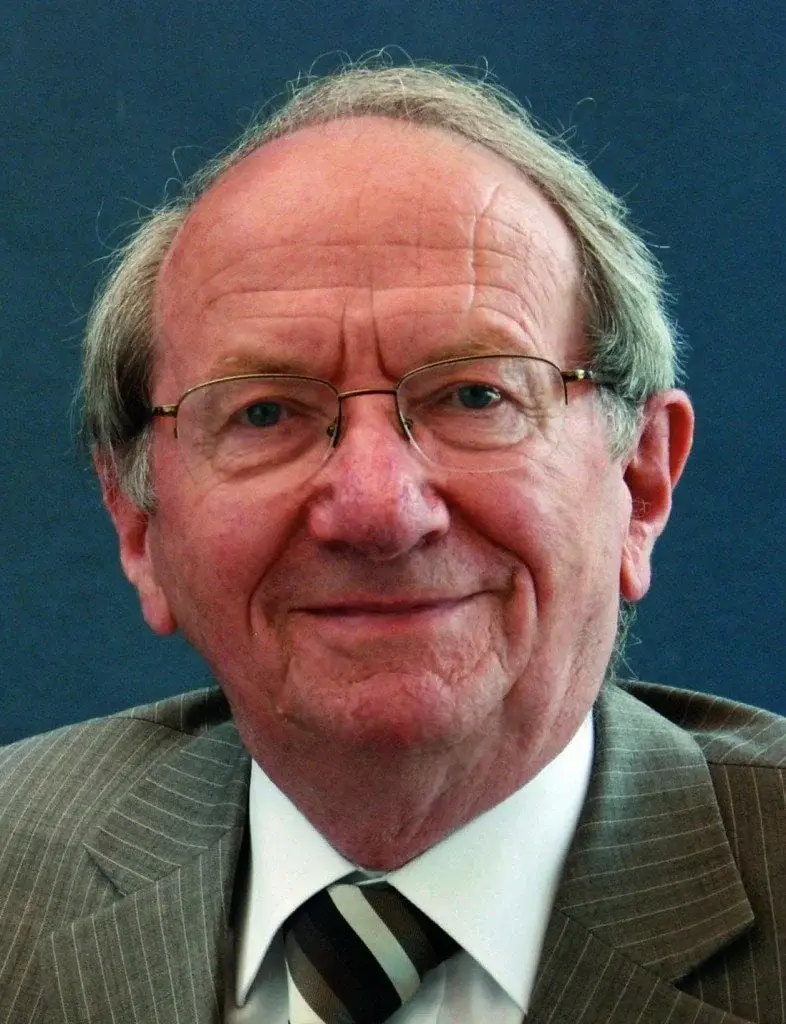Prized by John MacArthur is an old edition of John Foxe's Acts and Monuments of these latter and perilous days (1563), the book which first printed the story of William Tyndale, translator of the English Bible and martyred in 1536. Tyndale's enemy, Thomas More, complained of him that he was 'both nowhere and everywhere': 'nowhere' because few knew his actual location; 'everywhere' because his testimony was reaching all parts of the English-speaking nations. John MacArthur would never think of it, but the words suggest something of a parallel to me. Through hundreds of radio stations his voice is heard over a thousand times daily around the world; his books are to be found in thirty-five languages; yet the local scene where he spends the great part of his life is little known by most who read him or hear him broadcast. He is also 'nowhere and everywhere'.
The element of personal obscurity is of no concern to MacArthur. He stands in that genuine evangelical tradition which has no time for the creation of religious celebrities. When Paul says, 'Let a man so consider us, as servants of Christ and stewards of the mysteries of God', MacArthur understands him to be saying; 'Don't make anything out of me. I'm just a servant of Christ. I'm an under-rower, a third-level galley slave; I pull my oar, and that's what I'm supposed to do, nothing worthy of special attention.'1
Tyndale was 'a gospeller', or, as we would say, an evangelical. I use the term in its traditional meaning. In brief, an evangelical is a person who believes the 'three Rs': Ruin by the Fall, Redemption through Jesus Christ, and Regeneration by the Holy Spirit. It follows that an 'evangelical leader' is a person who stands out in the advancement and defence of those truths. The title does not necessarily imply success judged by numbers and immediate results. On that basis neither Paul nor Tyndale might qualify.
1. An evangelical leader is one who leads and guides the lives of others by the Scripture as the Word of God. He seeks to repudiate every other form of influence and pressure. His great concern is to teach Scripture accurately, and to see lives submitted to its authority.
2. An evangelical leader inspires the affection of followers because they learn Christ through him, and see something of Christ in him. They follow him because he follows Christ. And they love him because he loves them in Christ's name. 'The apostle Paul summarized the spirit of the true leader when he wrote, "Imitate me, just as I also imitate Christ."'2 And what is to be imitated the Scriptures do not leave in doubt: 'Almost every time Scripture holds up Christ as our example to follow, the stress is on his humility.'3
3. An evangelical leader is a man prepared to be unpopular. From the days when Ahab said to Elijah, 'Are you he that troubles Israel?', faithfulness to Scripture will not bring the approval of the majority. Dr MacArthur says bluntly, 'You cannot be faithful and popular, so take your pick.' A quest for popularity is a very short-term thing. For an evangelical, 'success isn't measured in hours, or even centuries. Our focus is fixed on eternity.' Success 'is not prosperity, power, prominence, popularity, or any of the other worldly notions of success. Real success is doing the will of God regardless of the consequences.'4
4. An evangelical leader is one who is awake to the dangers of the times. Not every Christian has the distinction that was once given to the tribe of Issachar, 'The men of Issachar had understanding of the times, to know what Israel ought to do' (1 Chron. 12:32). There are periods in church history when the leaders have seriously mistaken the way in which the cause of Christ is to be carried forward. The signs of the times have been misread. A true evangelical leader is raised up to provide God-given direction.5. An evangelical leader will not direct attention to himself. He personally owes everything to Jesus Christ. As a sinner he sees the need to live in a spirit of repentance all his days. He knows the contrast between what he is in himself and the message that he preaches: 'We have this treasure in earthen vessels, that the excellency of the power may be of God, and not of us' (2 Cor. 4:7). 'God chooses whom He chooses in order that He might receive the glory. He chooses weak instruments so that no one will attribute the power to human instruments rather than to God, who wields those instruments.'5
It follows that genuine spiritual leadership will lead others to the conclusion: 'Not unto us, O Lord, not unto us, but to Your name give glory, because of Your mercy, because of Your truth' (Psa. 115:1).
Taken from John MacArthur: Servant of the Word and Flock by Iain H. Murray, © 2011, pp. 1–4. Used by permission of The Banner of Truth Trust, Carlisle, PA 17015, www.banneroftruth.org.
References
[1] Hard to Believe (Nashville: Thomas Nelson, 2003), p. 46. An under-rower' is a favourite simile with MacArthur and he explains it further in The Master's Plan (Chicago: Moody, 1991), P. 39: "There are several words in the Greek for servant, and Paul used the one that best conveyed the idea of a lowly servant (GK., huperetes, "an under-rower"? It was the name for the slaves on the lowest deck of a three-tiered ship propelled by oars.
[2] Twelve Ordinary Men (Nashville: Thomas Nelson, 2002), p. 44, in a chapter where MacArthur sets out what leadership means.
[3] The Jesus You Can't Ignore (Nashvile: Nelson, 2008), p. 205.
[4] Ashamed of the Gospel (Wheaton: Crossway, 19)3), p. 29.[5] Twelve Ordinary Men, p. 13.



